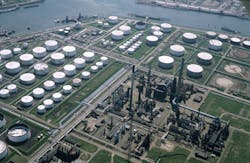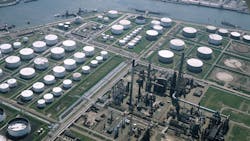According to a recent analysis by Platts, European refineries are losing ground to their counterparts across the Atlantic, where the U.S. refining sector is flourishing thanks to its access to cheap and abundant feedstock produced from unconventional oil. All this is adding to the already subdued demand for European production and continues to pose a threat to the existence of European refineries. Many experts predict that there will be further closures in the sector, especially as huge superscale refineries continue to emerge internationally.
The current state of the industry was discussed at a recent event held in Barcelona, where Antoine Halff, head of the oil industry division at the International Energy Agency (IEA), confirmed what has become quite obvious — U.S. refineries have been brought back to life, while a big proportion of the European refinery sector is on the verge of collapse.
The old days
In the past, surplus production from refineries in Europe used to be shipped to the United States but this is now nearly impossible as U.S. refineries are benefiting immensely from shale oil and gas production that has brought costs down and has allowed them to reduce their dependency on imports. This leaves European refineries with very few options, commented Nick Vandervell, director of the UK’s downstream oil industry association UKPIA.
RELATED: Total to modernize Antwerp refining and petrochemical platform
As an extra challenge, countries across the world are trying to catch up with the U.S. refining sector, which further limits the opportunities for European refiners. For example, Brazil has announced plans to increase and upgrade its own production in an attempt to meet rising domestic demand. Other Latin American countries which have relied on imports from Europe in the past are now looking towards North America for supplies.
In other bad news
Another key market for European gasoline and middle distillate production, Nigeria, is also implementing projects to reduce its dependency on imports and to increase domestic production. There are plans to accelerate maintenance at the country’s four refineries, with works at the first one — the Port Harcourt refinery — due to start before the end of 2013, stated Tony Ogbuigwe, executive director for refineries and petrochemicals at the Nigerian National Petroleum Corporation.
On top of this, European refineries have been hit by a sharp decrease in supply of one of their main feedstocks — vacuum gasoil. It has been mostly shipped from Russia, but plants there are expected to cut down on production as they engage in upgrades, leading to a predicted price hike. Halff said that soon availability could become a problem, thus causing further concerns among European refineries.



